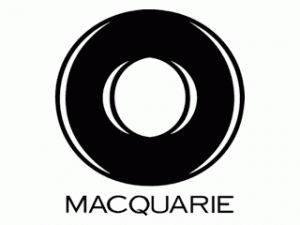 In all of the city council discussions over the Macquarie deal, the conversation has been dominated by the potential cost of the utility fee. Even with the extremely high probability of generating enough revenue to cover the utility fee and reduce the bond payment, it’s all about what how much money is going to be collected from the cities. This has sunk the deal in about half of UTOPIA cities and looms as a threat over the ones that opted to get more details under Milestone Two. If Macquarie wants this to pass, they need to quash this main opposition talking point.
In all of the city council discussions over the Macquarie deal, the conversation has been dominated by the potential cost of the utility fee. Even with the extremely high probability of generating enough revenue to cover the utility fee and reduce the bond payment, it’s all about what how much money is going to be collected from the cities. This has sunk the deal in about half of UTOPIA cities and looms as a threat over the ones that opted to get more details under Milestone Two. If Macquarie wants this to pass, they need to quash this main opposition talking point.
My projections are that this Macquarie deal creates a whole lot of money, both for Macquarie and the cities. Macquarie is operating in a very risk averse fashion despite this. They need to put more skin in the game in order to get current UTOPIA cities to take the deal and expand it across the state and the nation like they want. With their size and the low break-even point (35%-ish take rate), that should be easy to do.
Macquarie could alter the deal to eliminate or sharply reduce the direct utility fee. In its place, they should stipulate that they take 100% of the wholesale revenues until what would have been the utility fee is covered, then go back to the revenue split for any money beyond that. This would remove the possibility of cities having to pay anything for the deal and creates a small (and very remote) risk of them taking in less money than what it costs them to operate the network. There would be no way to scaremonger that the cities would be creating a huge tax on residents.
This is still a really good deal for cities. They eliminate all operational and maintenance costs associated with the network. If it doesn’t work, the only money they have to pay is the original bonds that they would have had to pay anyway. If it does work, they lower the bond payments. Either way, the network gets done, they eliminate the operational costs, and they get a completed network back at the end of 30 years.
There’s still downsides to this approach. Macquarie had planned to bond for 80% of the money needed to complete the build. The utility fee ensured that they could secure the best possible rates to do so. Without that kind of security, they would have to find alternate financing options or direct money internally to the project (and away from other projects). It could be harder for Macquarie to pull together the money and it will definitely mean that the revenue split for cities would be much smaller. It also means that Macquarie could end up not meeting their required ROI.
Maybe what Macqaurie could do is offer the cities three options and let each city pick the one that works for them. Option 1 would be the current utility fee with a maximum amount of revenue sharing to the cities. Option 2 would be no utility fee, but the cities have much lower odds of getting any kind of wholesale revenue split. Option 3 would be a lowered utility fee with a lowered share of wholesale revenues going to the cities. This would allow a lot of flexibility in how cities can opt in. It also allows Macquarie to at least partially take advantage of lower interest rates for the cities who take Option 1.
So far, Macquarie hasn’t played the politics of the situation very well at all. Despite a few big successes in the beginning, they’ve gotten their clocks cleaned in most of the cities that voted later and they haven’t been willing to accept that this is a full-scale war, not some alley fight. I’m hoping that they’ve paid attention and are willing to look at ways to keep this a good deal all around while defusing the biggest arguments against taking the deal.



